
Shrubs Around Las Vegas, Vegetation Around Las Vegas
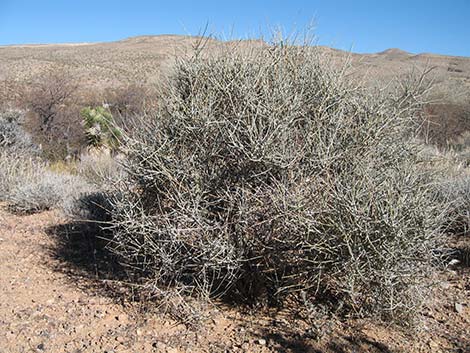 |
General: Nevada Jointfir (Ephedra nevadensis) is a mid-sized, upright shrub with many dull, gray-green, apparently leafless stems. Individual twigs come off the stems at widely diverging angles. The leaves are reduced to scales at stem joints, two per joint. Photosynthesis takes place in the stems. Members of this plant family are cone-bearing plants more closely related to pine trees than to flowering plants. The small cones (about 1/3-inch long) can be seen in the spring when the shrub is "flowering." Around Las Vegas, two common species of Ephedra have paired leaves. Nevada Jointfir can be recognized by leaves in sets of two and the dull, gray-green twigs that come off the stems at widely diverging angles (look for two-ranked stem joints and cones). Mormon Tea can be recognized by the two-ranked leaves and bright green twigs that all point upward. In addition, Nevada Jointfir generally occurs at a lower elevation than Mormon Tea. California jointfir and Death Valley Jointfir, both with leaves in sets of three, are common in some lower-elevation areas. Nevada Jointfir is a common component of vegetation communities in the Upper Sonoran (Mojave Desert Scrub and Pinyon-Juniper Woodland) life zones and can be found on dry, rocky bajadas, canyons, and the lower slopes of mountains. |
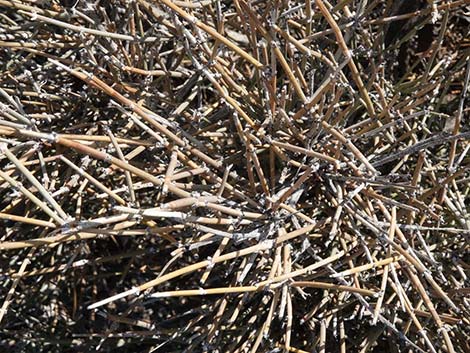 Widely diverging stems |
Family: Jointfir (Ephedraceae). Other Names: Mormon tea, Nevada ephedra, ephedra Plant Form: Erect shrub, apparently without leaves, stems gray-green. Height: Usually to about 3 ft high and 4-5 ft wide. Bark: Gray, fissured. Stems: Stems and twigs jointed, joints 2-3 inches apart. Twigs alternate (2-ranked), rigid, angling away from the stem. Twigs gray-green, aging to yellowish. Leaves: Tiny scales at the stem joints, arranged in pairs (on opposite sides of the stem). |
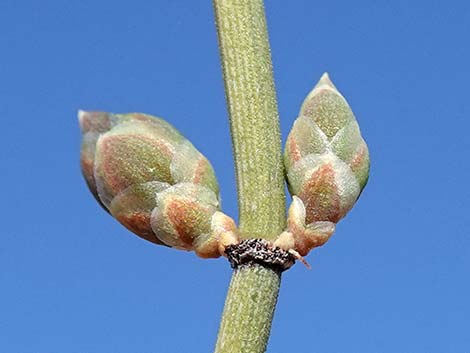 Two-ranked cones |
Flowers: Blooms in the spring. Plants are male or females. Male plants have pollen cones that grow from nodes; pollen cones elliptical to 8-mm long. Female plants have seed cones that grow from notes; seed cones nearly spherical to 11-mm diameter, set on short stalks. Seeds: 3 by 7 mm, brown, smooth. Habitat: Dry, well-drained sandy, gravelly, and rocky soils on upper bajadas and moderate slopes in the lower mountains; rocky areas. Elevation: 2,500 to 6,000 feet. Distribution: Southwestern deserts (Nevada, Arizona, California, and Utah) in the Mojave and Colorado deserts. Comments: Tea can be made by steeping the twigs in boiling water. The stems of most members of this genus contain the alkaloid ephedrine and are valuable in the treatment of asthma and other respiratory diseases. Mormon Tea is said to make a better tea. |
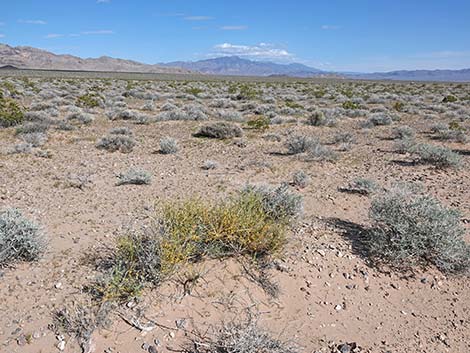 |
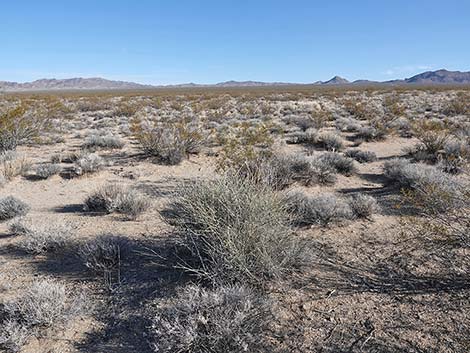 |
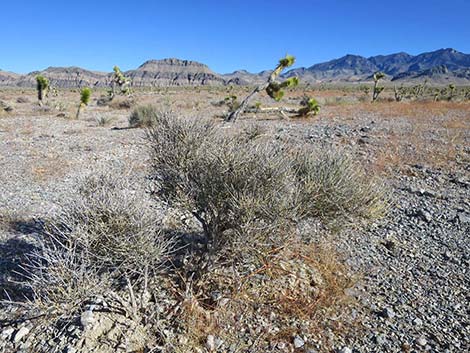 |
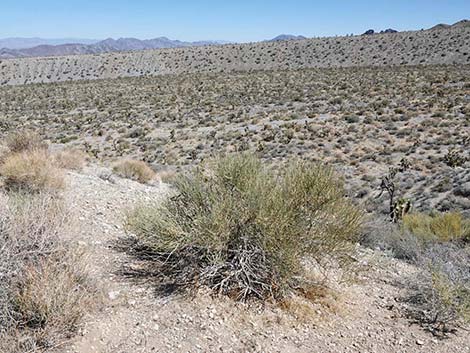 |
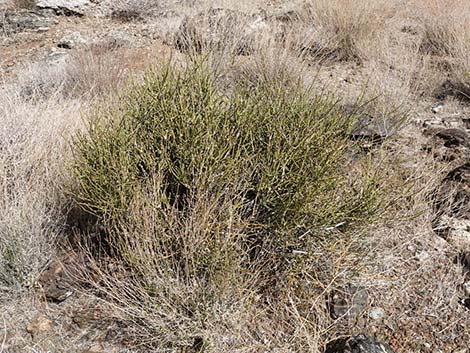 |
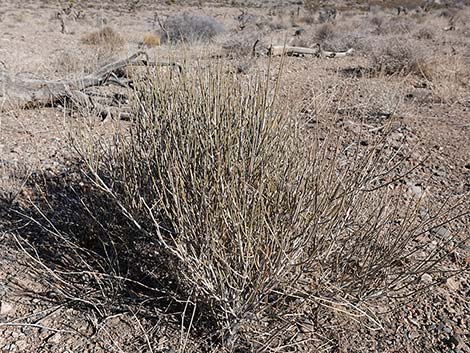 |
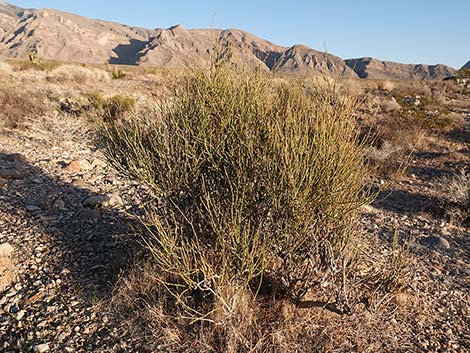 |
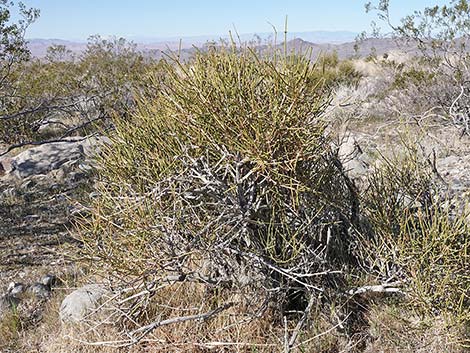 |
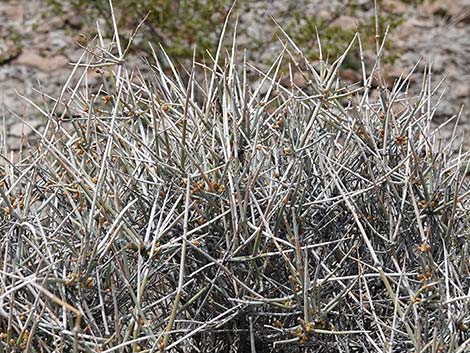 Dense, angular jointed stems |
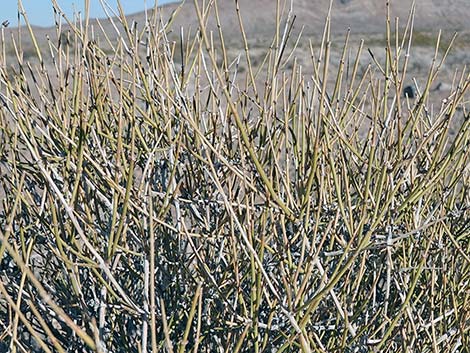 Dense, angular jointed stems |
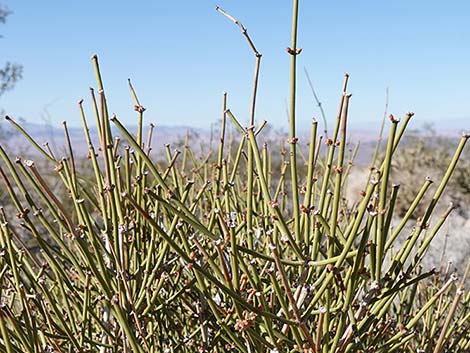 Dense, angular jointed stems |
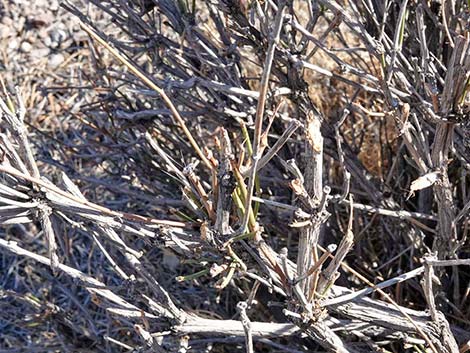 Dense, angular jointed stems |
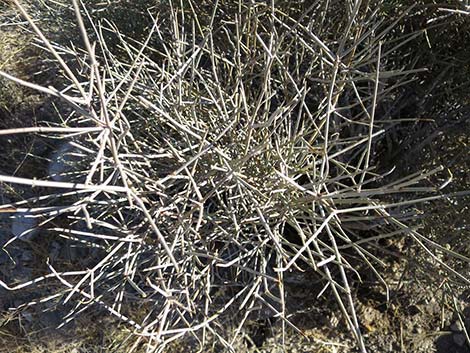 Dense, angular jointed stems (top-down view) |
 Dense, angular jointed stems (top-down view) |
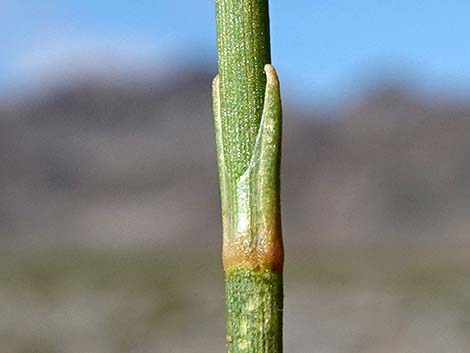 Fresh leave at stem node set in pairs (2-ranked) |
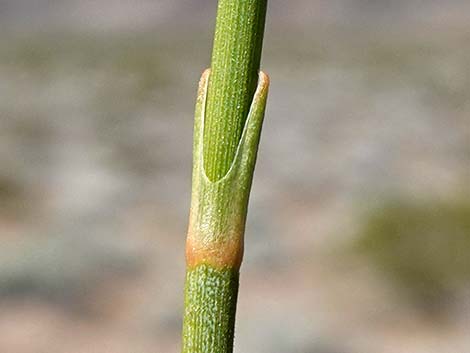 Fresh leave at stem node set in pairs (2-ranked) |
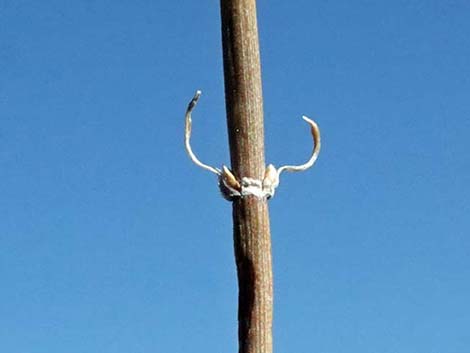 Dried leaves at stem node set in pairs (2-ranked) |
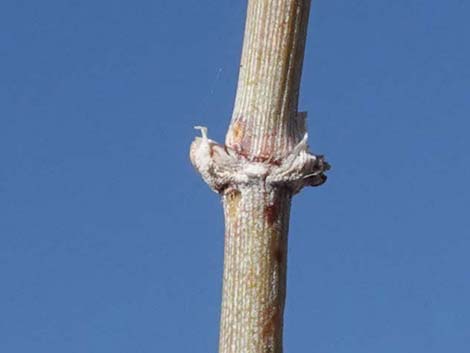 Dried leaf scar at stem node set in pairs (2-ranked) |
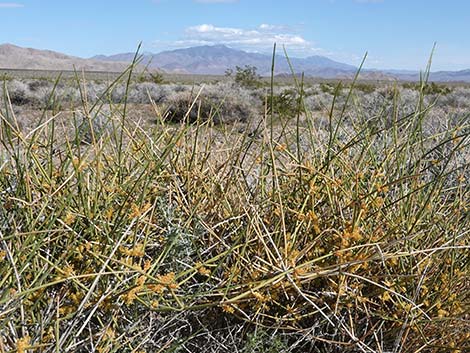 Male plant with flowers |
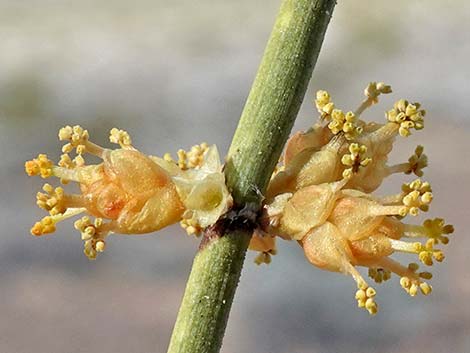 Male flowers with yellow stamens |
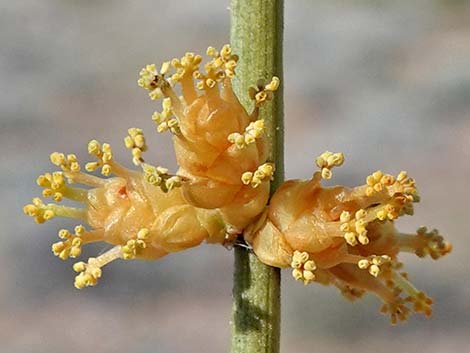 Male flowers with yellow stamens |
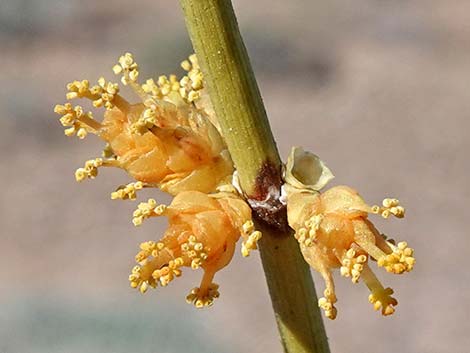 Male flowers with yellow stamens |
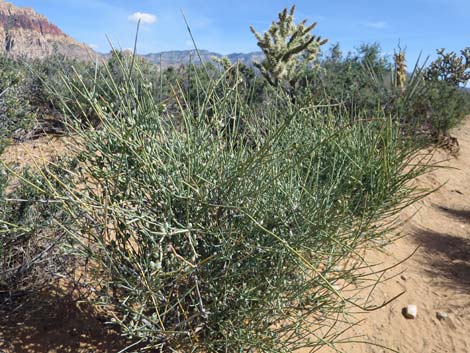 Female plant with ripening cones |
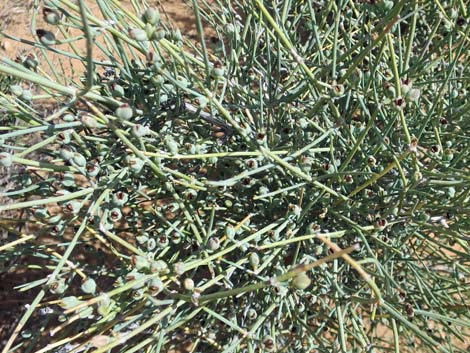 Female plant with ripening cones |
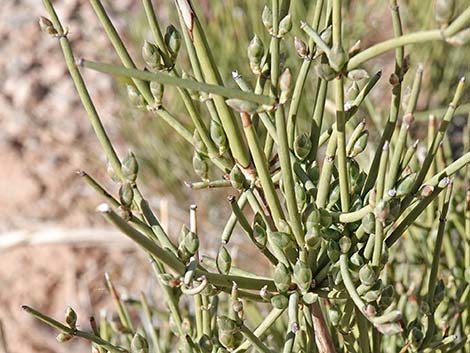 Female plant with ripening cones |
 Ripening female cones |
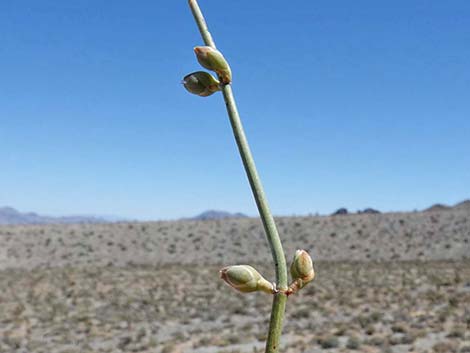 Female cones with developing seeds |
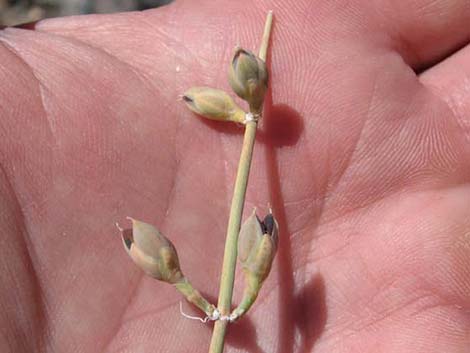 Female cones with developing seeds |
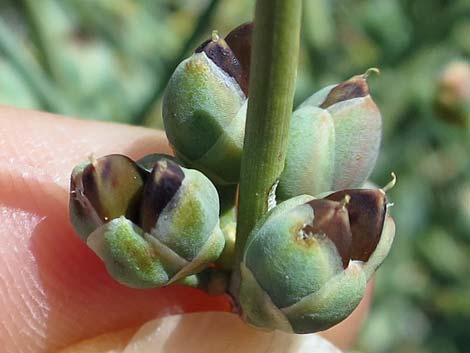 Female cones with ripening seeds |
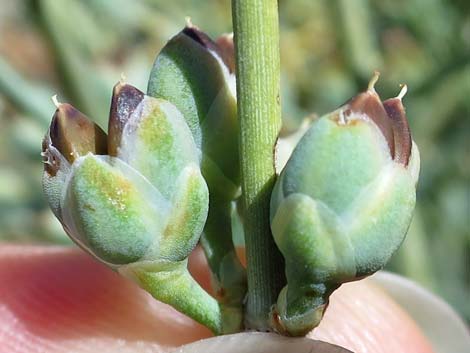 Female cones with ripening seeds |
Note: All distances, elevations, and other facts are approximate. Names generally follow the USDA database.
![]() ; Last updated 240915
; Last updated 240915
| All Shrubs | Plant Species Index | Glossary | Copyright, Conditions, Disclaimer | Home |